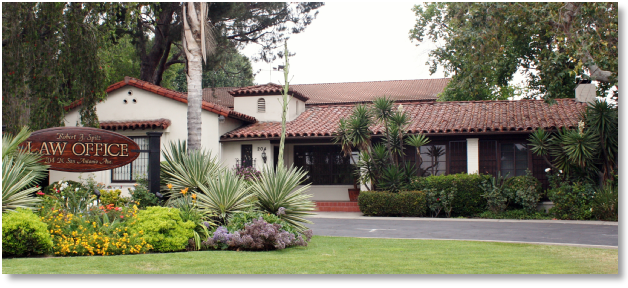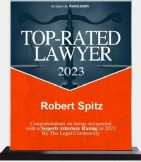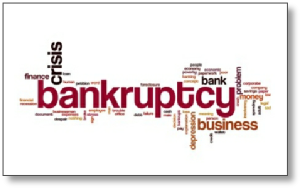



THE LAW OFFICES OF


For Consultation Call 909.395.0909


204 N. San Antonio Ave.
Ontario, CA 91762
Phone: 909-
Fax: 909-
Email: TPLaw@aol.com







DISCLAIMER: The information you obtain at this site is not, nor is it intended to be, legal advice. You should consult an attorney for advice regarding your individual situation. We invite you to contact us and welcome your calls, letters and electronic mail. Contacting us does not create an attorney-


Our Office Remains Open During the Covid-

Heartbeat
of America Award




Ontario Real Estate Litigation Attorney




I f you are currently struggling to pay your bills on time, are being constantly badgered by creditors, or are about to lose your home to foreclosure, the Law Offices of Robert J. Spitz is here to help!
f you are currently struggling to pay your bills on time, are being constantly badgered by creditors, or are about to lose your home to foreclosure, the Law Offices of Robert J. Spitz is here to help!
A highly skilled attorney who possesses more than 40 years experience helping clients obtain financial freedom from crushing debt, Ontario Bankruptcy Lawyer Robert Spitz is dedicated to helping clients stop foreclosures, stop evictions, and stop creditor harassment!
Please contact Ontario California Bankruptcy Attorney Robert J. Spitz at (909) 395-
Mr. Spitz will provide a comprehensive analysis of your financial circumstances and determine how best to resolve your monetary problems and all related issues as quickly as possible.
Personalized Bankruptcy Help in Ontario California
You don’t have to live in constant fear of creditors or with the enormous stress that comes with financial problems!
At the Law Office of Robert J. Spitz, we are proud to provide compassionate, experienced and skilled representation in a broad range of bankruptcy and debt relief matters, including:
Alternatives to Bankruptcy 
- Bank Levies
- Chapter 7 Personal Bankruptcy
- Chapter 11 Business Bankruptcy
- Chapter 13 Personal Bankruptcy
- Exemptions – Items you Can Keep
- Debts that are Dischargeable
- Loan Modification Information
- Stop Creditor Harassment
- Stop Foreclosure
- Wage Garnishment
In addition he can help you:
- Stop Auto Repossession
- Lower your Car Payments
- Eliminate Judgment Liens and Second Deed of Trust
- Stop Eviction
Each bankruptcy case is unique. At the Ontario California Bankruptcy Firm of Robert J. Spitz, our experienced debt relief and bankruptcy team will review your financial situation extensively, and determine if you qualify to file for Chapter 7 Bankruptcy Protection. Even if you do not qualify to file for Chapter 7, you may still be able to seek debt relief under the terms of Chapter 13 Bankruptcy. Financial relief is also available for business owners under Chapter 11 Business Bankruptcy.
Whether you need to stop creditor harassment or have decided to file for Chapter 7 or Chapter 13 Personal Bankruptcy or Chapter 11 Business Bankruptcy, contact Lawyer Robert Spitz as soon as possible! Mr. Spitz can help you overcome these problems and regain financial control of your life.
FAQ
What is the bankruptcy process?
Bankruptcy is a legal process in which parties seek relief from debt. There are several different types of bankruptcy that an individual or a business may pursue. Each bankruptcy option is focused on relieving a specific type of debt. The type of bankruptcy you file may be determined by the amount of assets you own. The type of bankruptcy filed by a business is determined by the legal entity under which a company has formed. Bankruptcy can be a good solution when a party cannot keep up with their financial obligations. In the Bankruptcy Process, the Bankruptcy Court may wipe away certain debt or reorganize the debt for scheduled repayment. The bankruptcy process is complex, and an experienced bankruptcy attorney can provide skilled legal advice and counsel on the most appropriate debt relief option for you.
Is bankruptcy the best option for debt relief?
If you are feeling the weight of unpaid bills and facing pressure from creditors, you may have several options for relieving this financial burden. An experienced debt relief attorney can help you explore bankruptcy and bankruptcy alternatives to help you find the solution that fits your needs. Some people may be able to resolve financial problems by having an attorney negotiate debt repayment through settlements with creditors. Others may find bankruptcy offers the best outcome for them.
In personal bankruptcies, the person who files for bankruptcy must complete a debtor education course after filing for bankruptcy. The counseling is mandated by the court and helps people decide whether bankruptcy is right for them. This course in financial education must be finished before the debts are discharged. The course educates the debtor on personal financial management techniques. A certification of completion is filed with the court upon fulfillment of the course requirements.
What is unsecured and secured debt?
Different types of debt are handled in different manners depending on which type of bankruptcy is filed. Unsecured debts are obligations for which the debtor either did not pledge a tangible asset as security or for which the security's value has decreased to the point that it is of no value. Unsecured is not the same as under-
What debts can be discharged in bankruptcy?
When debts are discharged in a bankruptcy case, they are wiped from the debtor’s record and no longer need to be repaid. Whether or not a debt is dischargeable generally depends upon the type of Bankruptcy Protection sought from the Bankruptcy Courts. If you meet the financial criteria to qualify for Chapter 7 Bankruptcy, the following types of debt may be discharged:
- Credit Card Debts
- Collection Account Debts
- Past Due Rent owed on Leases
- Money Judgments (unless awarded for fraud)
- Unsecured Loans
- Medical Bills
- Debts owed on Leases
- Attorney Fees (unless awarded for child or spousal support)
If you do not qualify for Chapter 7 Bankruptcy, you may still be able to discharge debts under Chapter 13 Bankruptcy through a different process. Discharge of debts under Chapter 13 Reorganization Bankruptcy is more complex than discharge under Chapter 7, due to the differences between the two types of bankruptcy. However, the following types of debts are generally not dischargeable by the Bankruptcy Court:
- Child Support Obligations
- Spousal Support Obligations
- Student Loans
- Criminal Fines
- Fines or Judgments resulting from a DUI
There are times when the Bankruptcy Court may deny a discharge. In that case, none of the debts are dischargeable. At other times, the court may determine that only specific debts are not dischargeable. Generally, child support, spousal support, student loans, taxes, liabilities for fraud and bad acts are not dischargeable through bankruptcy. There are other exceptions that may affect the status of a particular debt in your case.
Ontario California Bankruptcy Attorney
| Business Contracts |
| Business Formation |
| Business Litigation |
| Foreclosure & Loan Modifications |
| Landlord / Tenant |
| Real Estate Litigation |
| Real Estate Info Sheet |
| Real Estate Litigation Info Sheet |
| Business Contracts Info Sheet |
| Bankruptcy Info Sheet |
| Business Formation Info Sheet |